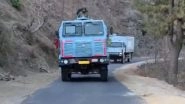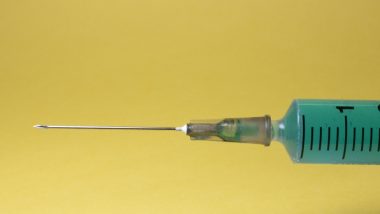Malaria, one of the biggest killers in the world, claims millions of lives every year worldwide. To bring attention to this mosquito-borne illness and to devise better treatment methods, WHO observes World Mosquito Day every year on April 25. So far, the management of malaria symptoms was the mainstay of “treating” the disease. But on April 23, 2019, ahead of World Malaria Day 2019, WHO launched the world’s first ever malaria vaccine RTS,S/AS01 or RTS,S. Known also by its brand name Mosquirix, RTS,S is a result of decades of malaria research. The vaccine can help prevent the incidence of malaria and has been proven to be effective after undergoing rigorous clinical trials. Here’s everything you should know about this revolutionary malaria vaccine RTS,S. World Malaria Day 2019: History, Theme and Significance of the Day for Awareness About the Mosquito-Borne Disease.
History of RTS,S
RTS,S was first developed in 1987 by GSK laboratories. Ever since the 60s, finding a vaccine for malaria has been a prime area of research for medical scientists. Before RTS,S, another malarial vaccine SPf66 was used in the 1990s, which was proven to be ineffective. How to Identify a Female Anopheles Mosquito (Before You Get Bitten).
Out of many potential vaccines that could give protection against the malarial parasite, RTS,S is the most potent.
So in 2001, the Bill & Melinda Gates Foundation funded GSK and PATH (a non-profit organisation) to develop the vaccine for infants and young children living in areas where malaria is rife. Odisha Best Performer! How India Improved Its Malaria Score This Year.
In 2014, the Phase 3 trial was concluded. RTS,S proved to be effective in warding off malaria. World Malaria Day 2019: Symptoms of The Mosquito-Borne Disease and Ways to Prevent Malaria.
RTS,S got a positive nod from the European Medicines Agency in 2015 and was recommended by WHO in 2015. Home Remedies For Malaria and Dengue: 5 Ingredients To Treat These Vector-Borne Diseases At Home.
To test the efficiency of the malaria vaccine, WHO plans to provide RTS,S vaccines to children in three sub-Saharan African countries in 2019.
Top Facts About RTS,S Vaccine (Watch Video):
RTS,S vaccine was launched on April 23, 2019, in Malawi under the brand name Mosquirix, ahead of World Malaria Day. The landmark pilot programme hopes to protect thousands of children under the age of five against malaria, which is one of the world’s biggest killers.
How Does RTS,S Work?
To understand how the vaccine works, it’s crucial to know how the parasite enters and attacks the human body.
Malaria enters the human body through the saliva of an infected Anopheles mosquito bite.
Once inside the body, the parasite infects the liver cells. It then thrives, matures and multiplies inside the liver. In the next stage, the protozoan enters the red blood cells and infects them. And the first symptoms of malaria starts showing.
RTS,S vaccine works by triggering the immune system to fight the malarial Plasmodium falciparum parasite when it enters the human blood through a mosquito bite, preventing it from infecting the liver cells. Thereby, the malarial parasite cannot multiply inside the liver or enter the bloodstream.
How Effective is RTS,S?
RTS,S has been subjected to a series of rigorous trials. It was proven to be effective in stalling the growth of the malarial parasite in Phase 3 of the largest malaria vaccine trial in Africa.
A total of 15,459 infants and children were given the malaria vaccine in 11 clinical research centres in seven African nations – Burkina Faso, Gabon, Ghana, Kenya, Malawi, Mozambique and Tanzania.
In Phase 3 of the trial, researchers found that the vaccine prevented 39 percent cases of malaria and 29 percent cases of severe malaria in children who were given four doses of RTS,S over four years.
The fourth dose helped prolong protection against clinical malaria and 1,774 cases were preventing per 1,000 children immunised.
But the efficiency of the malaria vaccine reduced over time. And further studies have been started to analyse how to improve long-term efficiency and the need for additional doses of RTS,S.
However, the WHO has added that RTS,S is a complementary tool to control malaria. RTS,S should be used in conjunction with WHO-recommended measures for malaria prevention such as insecticide-treated nets, mosquito sprays and timely malaria testing and treatment.
The new malaria vaccine will help in reducing infant and child deaths due to the mosquito-borne illness, which claims 250,000 young lives in Africa every year.
(The above story first appeared on LatestLY on Apr 25, 2019 12:44 PM IST. For more news and updates on politics, world, sports, entertainment and lifestyle, log on to our website latestly.com).













 Quickly
Quickly


